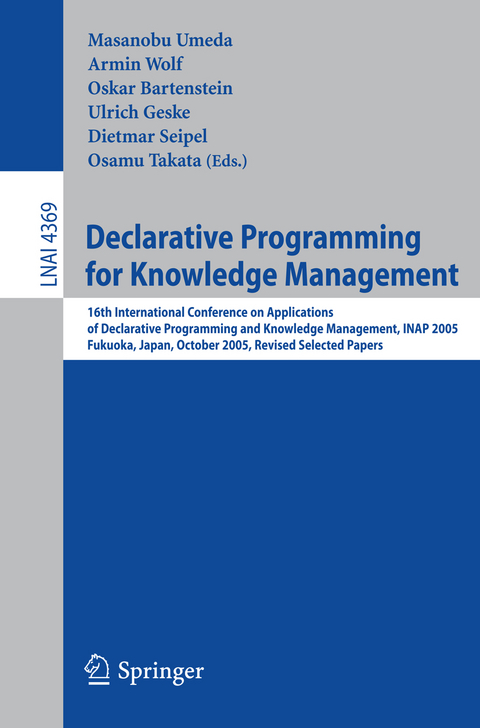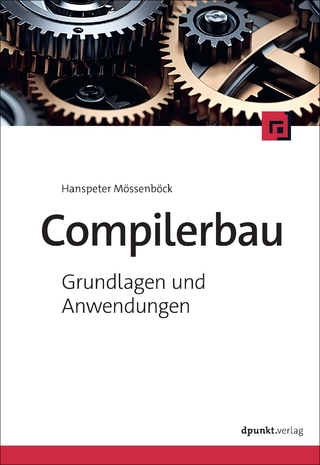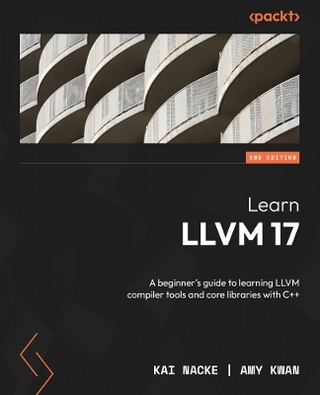
Declarative Programming for Knowledge Management
Springer Berlin (Verlag)
978-3-540-69233-1 (ISBN)
Frontier Technologies.- Prolog Cafe: A Prolog to Java Translator System.- TURTLE++ - A CIP-Library for C++.- Constraint Solving for Sequences in Software Validation and Verification.- Using a Logic Programming Language with Persistence and Contexts.- On a Rough Sets Based Data Mining Tool in Prolog: An Overview.- Not-First and Not-Last Detection for Cumulative Scheduling in .- Calc/Cream: OpenOffice Spreadsheet Front-End for Constraint Programming.- Overload Checking for the Cumulative Constraint and Its Application.- Inductive Logic Programming: Yet Another Application of Logic.- Industrial Case Studies.- Railway Scheduling with Declarative Constraint Programming.- User Profiles and Matchmaking on Mobile Phones.- A Design Product Model for Mechanism Parts by Injection Molding.- A Knowledge-Based System for Process Planning in Cold Forging Using the Adjustment of Stepped Cylinder Method.- Business Integration.- An Overview of Agents in Knowledge Management.- ubiCMS - A Prolog Based Content Management System.- Multi-threading Inside Prolog for Knowledge-Based Enterprise Applications.- A Meta-logical Approach for Multi-agent Communication of Semantic Web Information.
| Erscheint lt. Verlag | 27.12.2006 |
|---|---|
| Reihe/Serie | Lecture Notes in Artificial Intelligence | Lecture Notes in Computer Science |
| Zusatzinfo | X, 229 p. |
| Verlagsort | Berlin |
| Sprache | englisch |
| Maße | 155 x 235 mm |
| Gewicht | 349 g |
| Themenwelt | Mathematik / Informatik ► Informatik ► Programmiersprachen / -werkzeuge |
| Informatik ► Theorie / Studium ► Compilerbau | |
| Informatik ► Theorie / Studium ► Künstliche Intelligenz / Robotik | |
| Schlagworte | AI logics • automated reasoning • Constraint Processing • Constraint Solving • C++ programming language • Data Mining • Decision Making • decision support • Declarative Programming • Description Logics • Knowledge-Based System • knowledge management • Logic • Logic Programming • model generation • Programming language • SAT solvers • Scheduling • semantic web • theorem proving • Validation • verification • Web mining |
| ISBN-10 | 3-540-69233-9 / 3540692339 |
| ISBN-13 | 978-3-540-69233-1 / 9783540692331 |
| Zustand | Neuware |
| Haben Sie eine Frage zum Produkt? |
aus dem Bereich


